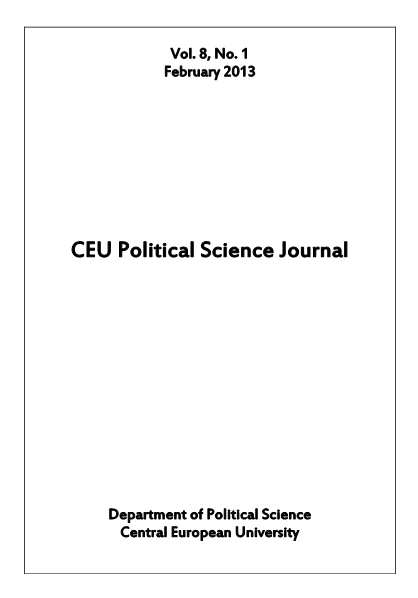The Anxious Partisan: A Test of Affective Intelligence Theory in Romania
The Anxious Partisan: A Test of Affective Intelligence Theory in Romania
Author(s): Alexandra BogdanSubject(s): Politics / Political Sciences
Published by: Central European University (CEU) - Center for Policy Studies
Keywords: party identification; anxiety; Affective Intelligence Theory; Romania
Summary/Abstract: To navigate the complicated world of electoral politics, individuals may make use of cognitive shortcuts. One such heuristic is partisanship. When it comes time to make a choice at the polls, voters will follow their party identification in order to choose a candidate. Yet, for such attachments to develop, voters need time to familiarize themselves with the party system. Using panel data from the Romanian Presidential Election Study 2009, gathered before and after the Presidential Elections, this article identifies three groups of individuals: consistent partisans, inconsistent partisans, and non-partisans. This analysis tests the theory of Affective Intelligence and finds that partisans who are made anxious by a candidate are less likely to rely on their party identification when making a vote choice, while anxiety does not appear to have any effect on non-partisans. The model only applies to partisans of the main challenger’s party, and not for partisans of the incumbent’s party.
Journal: CEU Political Science Journal
- Issue Year: 2013
- Issue No: 01
- Page Range: 1-31
- Page Count: 31
- Language: English

